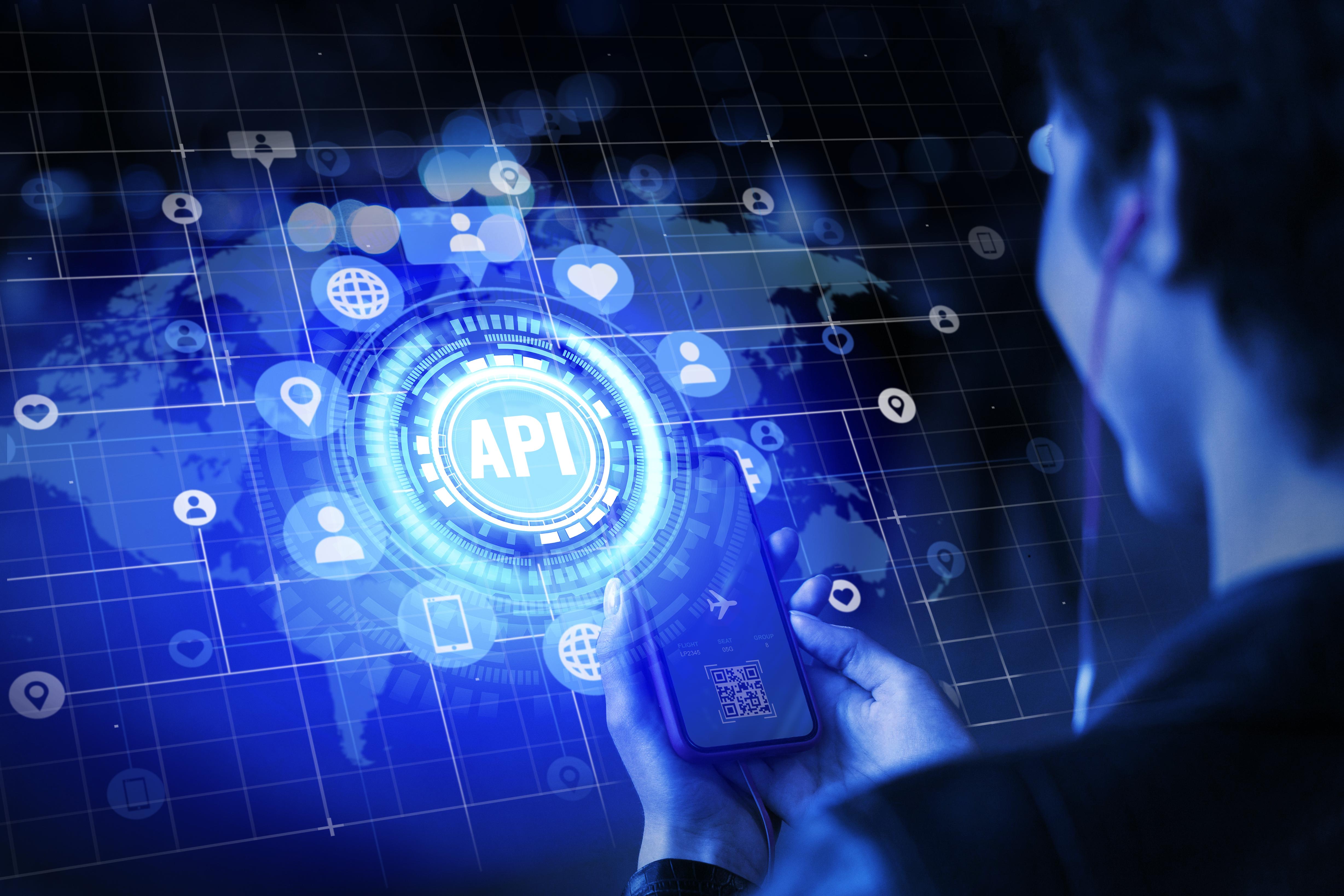Resources/Blogs

February 11,2025 | Custom AI Development
Custom AI Application Development
Unlocking Business Potential
Artificial Intelligence (AI) has rapidly evolved from a futuristic concept into an indispensable tool for businesses of all sizes and industries. As the demand for AI-powered solutions continues to grow, companies are seeking ways to develop customized AI applications tailored to their unique needs. Custom AI application development offers an exciting opportunity to enhance productivity, improve decision-making, and streamline operations.
In this blog, we will explore the process, benefits, and challenges of custom AI application development, and why it’s becoming a game-changer in today’s business world.
What is Custom AI Application Development?
Custom AI application development refers to the process of designing, building, and deploying artificial intelligence-powered solutions specifically tailored to meet the unique requirements of a business or organization. Unlike off-the-shelf AI tools that provide generalized functionalities, custom AI applications are developed with the specific goals, processes, and data of a business in mind.
AI applications can range from simple machine learning models to sophisticated deep learning algorithms and natural language processing systems, all of which can be integrated into various business functions, including customer service, marketing, sales, operations, and more.
Key Benefits of Custom AI Application Development
- Tailored to Business Needs
One of the most significant advantages of custom AI development is its ability to be tailored to the specific requirements of the business. Whether it’s automating complex workflows, enhancing customer experiences, or analyzing vast datasets, custom AI applications are designed with your organization’s goals in mind, ensuring a higher return on investment.
- Improved Efficiency and Automation
AI applications can significantly reduce manual workloads by automating repetitive and time-consuming tasks. Whether it’s chatbots for customer service, data entry automation, or predictive maintenance in manufacturing, AI can enhance efficiency across various business functions, allowing employees to focus on higher-value tasks.
- Enhanced Decision-Making
Custom AI solutions can analyze massive amounts of data in real-time, providing businesses with valuable insights that are impossible for humans to extract manually. With AI-driven data analysis, businesses can make informed, data-backed decisions, improving outcomes and reducing risks.
- Scalability and Flexibility
Custom AI solutions can be designed to scale alongside the growth of a business. As the organization evolves and faces new challenges, AI applications can be adjusted, expanded, or fine-tuned to meet the changing needs, providing a future-proof solution.
- Competitive Advantage
Leveraging AI in a custom-built manner can provide companies with a competitive edge. Tailored AI applications allow businesses to innovate, offering unique products, services, and experiences that set them apart in the marketplace.
The Process of Custom AI Application Development
Developing a custom AI application involves several key steps that ensure the solution meets the intended business objectives.
- Requirement Analysis
The first step is to understand the business requirements thoroughly. This involves identifying pain points, opportunities for improvement, and defining clear goals for the AI solution. Business stakeholders, developers, and data scientists collaborate to assess the best approach for developing the AI system.
- Data Collection and Preparation
AI systems rely on data to make intelligent decisions. Therefore, gathering high-quality data is crucial for training machine learning algorithms. Data collection may include historical business data, customer interactions, sensor data, or publicly available datasets. The data is then cleaned and preprocessed to ensure it’s suitable for the AI model.
- Model Selection and Training
Next, data scientists and AI engineers choose the appropriate machine learning or deep learning models based on the type of problem being solved. This could range from supervised learning for classification problems to unsupervised learning for clustering and anomaly detection. Once the model is selected, it is trained on the prepared data to learn patterns and make predictions.
- Integration with Existing Systems
Once the AI model is developed and trained, it needs to be integrated with the existing IT infrastructure, such as CRM, ERP, or legacy software systems. This step ensures that the AI application can seamlessly communicate with other business tools, making it part of the overall workflow.
- Testing and Evaluation
Before the custom AI application goes live, rigorous testing is essential. AI models are evaluated for accuracy, performance, and scalability. Ensuring that the AI performs as expected in real-world conditions is critical to minimizing the risks associated with deployment.
- Deployment and Monitoring
Once the testing phase is complete, the custom AI solution is deployed and monitored continuously to ensure it operates efficiently. Real-time monitoring helps detect issues early and allows for the fine-tuning of the system over time.
- Continuous Improvement
AI applications are not static. They can always improve with more data and new advancements in technology. Regular updates and model retraining ensure that the AI system adapts to changing conditions and remains aligned with business goals.
Challenges in Custom AI Application Development
- Data Quality and Availability
AI applications heavily rely on data for their success. Poor data quality, incomplete data, or lack of sufficient data can hinder the performance of AI models. Ensuring accurate and comprehensive data is a critical challenge in custom AI development.
- High Development Costs
Building a custom AI solution requires specialized knowledge and expertise in AI technologies, which can be expensive. The cost of hiring data scientists, AI developers, and maintaining infrastructure can be a barrier for small businesses, though the return on investment can justify the cost in the long run.
- Complexity of AI Models
AI models, especially deep learning algorithms, can be complex and challenging to develop, requiring advanced expertise in areas like neural networks and natural language processing. Businesses may face difficulty in hiring the right talent and training the models to meet specific requirements.
- Data Privacy and Security
AI applications often handle sensitive data, making data security and privacy a significant concern. Businesses must ensure they comply with regulations such as GDPR or CCPA to protect customer data and avoid legal liabilities.
- Integration with Legacy Systems
Many businesses still rely on legacy systems that are not designed to work with modern AI applications. Integrating AI with existing infrastructure can be a technical challenge, requiring both customization and optimization.
Conclusion
Custom AI application development offers businesses a unique opportunity to enhance operations, improve decision-making, and stay ahead of the competition. With tailored solutions that meet specific business needs, companies can leverage AI to automate tasks, gain insights from data, and drive innovation.
However, businesses must carefully consider the challenges involved in custom AI development, such as data quality, costs, and technical complexity. By working with skilled AI developers and ensuring proper planning, companies can successfully harness the power of AI to unlock new opportunities and achieve long-term success.
In a world where AI is revolutionizing every industry, custom AI application development is no longer just an option—it's a necessity for businesses that want to stay relevant and competitive in the digital age.
Join the Movement: We are more than a technology and AI solutions company — we are a trusted innovation partner. Together, we’ll redefine how technology transforms industries and build solutions that create lasting impact. Partner with Umbrella Solutions.io to explore endless possibilities powered by intelligence.
Ready to thrive in a digital world?
Contact Us Today!
Connect with Umbrella Solutions.io to discover how AI business consulting can transform your operations with next-generation automation and intelligence.
support
anytime,
anywhere.
average
response
time.


